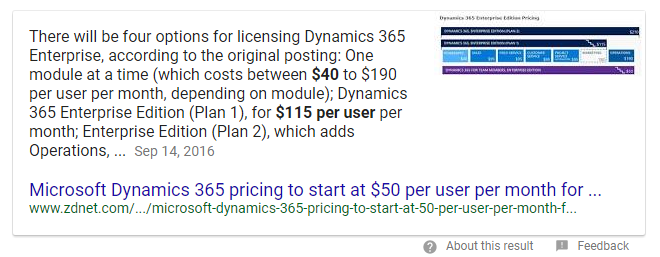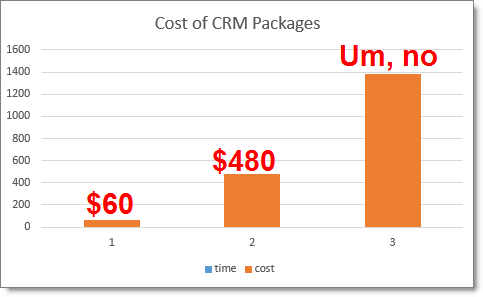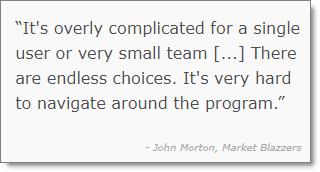Last week I got an email from someone who is evaluating JibberJobber with a list of issues that is unsettling. One of them was this:
5) No comparison of your product with Microsoft’s CRM products
Yes, I have not done a comparison of JibberJobber with Microsoft’s products. So I’ll do that now. I might as well do a comparison of other CRMs, while I’m at it.
I’m not going to do fancy graphs or anything, and my comparison will be non-tradition, so brace yourself.
How does JibberJobber compare to Microsoft Dynamics? The same way an elephant compares to a giraffe. They are completely different beasts.
Let me pause on my comparison real quick and just state what JibberJobber is/does.
JibberJobber is a website (with a widget and mobile apps) to help (mostly) job seekers organize and manage their job search. Some people who are not job seekers use JibberJobber to organize and manage personal and professional relationships, and help them network for when they might be in transition. Or, they use it to help them manage their freelance gigs, prospects, etc. Some companies use JibberJobber, but that’s not the standard, nor is it or has it ever been our audience. We need to get this job search audience taken care of before we get crazy and compete with the probably thousands of CRM offerings out there.
No other CRM that you have heard of does that. CRMs came about to help salespeople manage the sales cycle, including prospects and customers.
JibberJobber was designed for job seekers, based on CRM concepts (relationship management, etc.). But no CRM company sees any money in the job seeker to care about them. They care about charging lots of money to companies and hope their users (salespeople) actually use, and get hooked on, their systems.
Back to the comparison… money:
Microsoft Dynamics (365 Enterprise)… I don’t know for sure. But a google search shows this (click this image to go to the search results page):
Cool. $40 to $190 a month… or I guess Plan 1 is $115/user/month.
JibberJobber pricing is $60 a year (here’s the math: that is like paying $5/month, but we just charge it all upfront). It also includes the video library.
So, let’s say that Microsoft will be $480 on the low end, to maybe $1,380 per year.
Okay, I lied. I am going to include a chart that I spent exactly 3 minutes to make (2.5 to get Excel to open, and 30 seconds to make this comparison). In column 1 you have the annual cost of JibberJobber ($60). In column 2 and 3 you have different levels of Microsoft Dynamics:
Comparison of features: Look, we already talked about this. The question should start with “who is this for?” JibberJobber is for the individual job seeker. Their purpose is to get a job. Microsoft and other CRM packages is for salespeople, or business owners, or sales organizations. Their purpose is to increase sales… close more deals, upsell. Elephants and giraffes. Doing a comparison based on features is simply unfair.
Since you asked for it, here’s a customer review (the “most negative review”)… can you guess which software suite this was for?
If you guessed Microsoft Dynamics, you are RIGHT! But hey, I’m not daft. Plenty of JibberJobber users have said similar things… “overly complicated,” and “hard to navigate around,” and other things like that. Others have jumped in, learned it, figured out what they need, and get value out of it.
I know we have plenty of design issues, which we are addressing one by one. I’m not going to hide from that, or ignore it. It’s true. But we are working on it.
Should you use Salesforce, or Dynamics, or any other CRM?
Use the tool you want to. I hope that if you are a job seeker, you use, love, and recommend JibberJobber. If you choose another system, great! I hope that whatever you choose helps you in your job search and career management.
If you need more comparison ideas, just go google “compare _____ to _____ in Google,” and you’ll get nice pretty graphs and information that might delight you. In the end, your job search success will not be positively impacted by spending weeks comparing all of these things. It’s time to network, pick up the phone, reach out to people, message them, etc.



